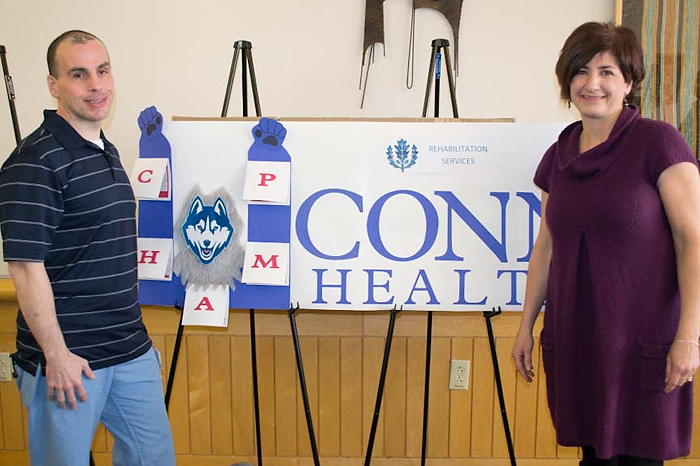
The UConn School of Medicine this week joins a consortium of more than 30 academic medical centers dedicated to supporting quality improvement initiatives. The consortium, known as “ae4Q” – which stands for Aligning and Educating for Quality Initiative – is being led by the American Association of Medical Colleges (AAMC) and provides university hospitals with a range of resources and educational tools to implement and measure quality programs.
The timing of this nationwide initiative is critical both as changes in healthcare financing place a greater emphasis on quality, and hospitals work to improve the patient experience.
“We’re delighted to work with the AAMC to help mobilize our faculty around the urgent issue of quality improvement and to use our Continuing Medical Education (CME) platform to achieve these goals,” says Dr. Leighton Huey, associate dean for community and continuing education.

UConn Health’s involvement in ae4Q was codified during a two-day series of meetings this week between AAMC officials and UConn Health faculty, students, residents and administrators, as well as a CME forum on quality improvement.
“Effective CME can be the glue or driver for a learning health care system, a valuable, and therefore supported, way of achieving better healthcare and educational outcomes,” says Dr. Dave Davis, one of two AAMC consultants leading the ae4Q project.
He adds that there are many ways UConn Health can leverage its ae4Q involvement including, “taking part in webinars and other community-of-practice activities; incorporating ae4Q recommendations in strategic planning; and taking full advantage of the resources and contacts available through the AAMC.”
Visual learning
At UConn Health, several quality improvement initiatives are underway. Last week, more than two dozen posters were submitted during a recent “Safety Coach” meeting of clinical areas. The posters focused on the particular safety issues each department handles every day and how that impacts their patients and quality of service.

Steve Kreiser, senior consultant for Healthcare Performance Improvement (HPI) and High Reliability Coach, judged the presentations and offered feedback.
UConn Health is working with HPI to become more reliable and is incorporating techniques from aviation and nuclear power industries to eliminate errors.
“If you put it on a poster it makes it a little bit more real,” explains Kreiser. “It’s visual learning. I can see how my unit used one of the safety tools to save a life or kept a patient from being harmed. And maybe it’s something I will pick up on and use someday to make a great catch or have a greater sense of safety in my practice.”
Each of the 27 departments that made a presentation received a specific recognition for its poster but the grand prize winner was from the Department of Rehabilitation Services.
“We thought this would be a more meaningful project for safety week,” explains Ann Marie Capo, associate vice president for clinical effectiveness and patient safety and chief quality and patient safety officer. “Instead of just having Steve come and talk to us, we wanted to make it interactive so the safety coaches could talk about what is happening on their floors. I was extremely pleased with the response.”
Follow UConn Health on Facebook, Twitter and YouTube.



